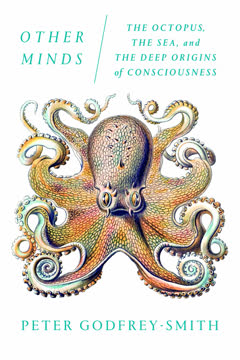가지 주요 요점
1. 인간 본능은 우리의 행동을 형성하며, 이는 우리의 진화적 과거에 뿌리를 두고 있다
"우리는 모두 짝을 찾고 자녀를 낳도록 설계되어 있다. 우리의 유전자 관점에서 보면, 번식이 전부다."
우리 조상의 유산. 인간 행동은 수백만 년 동안 아프리카 사바나에서 진화한 본능에 깊이 영향을 받는다. 자연 선택에 의해 형성된 이러한 본능은 현대 생활에서 우리의 의사 결정, 사회적 상호작용, 감정적 반응에 계속 영향을 미친다.
본능 대 현대 세계. 우리의 본능은 선사 시대 생존에 적응적이었지만, 때로는 현대 사회의 요구와 충돌할 수 있다. 예를 들어:
- 위협적이지 않은 자극에 대한 두려움 반응
- 풍요로운 시대에 고칼로리 음식에 대한 갈망
- 평화로운 사회 환경에서의 공격적 경향
이러한 본능적 충동을 이해하면 현대 생활의 복잡성을 헤쳐 나가고 우리의 행동에 대해 더 현명한 선택을 할 수 있다.
2. 생존 본능: 투쟁-도피 반응과 그 현대적 의미
"당신의 몸 안에서는 모든 지옥이 풀려났다. 생물학적 사이렌과 경보가 울리고 있다."
생리적 반응. 투쟁-도피 반응은 인식된 위협에 직면했을 때 즉각적인 행동을 준비시키는 강력한 생존 메커니즘이다. 이 본능적 반응은 다음을 포함한다:
- 스트레스 호르몬(아드레날린, 코르티솔)의 급속한 방출
- 심박수와 혈압 증가
- 근육으로의 혈류 재분배
- 감각 인식 향상
현대적 맥락. 이 반응은 포식자에 직면한 우리 조상들에게는 필수적이었지만, 현대 생활에서는 생명을 위협하지 않는 스트레스 요인에 의해 촉발될 수 있다. 예를 들어:
- 대중 연설
- 업무 마감일
- 교통 체증
- 사회적 갈등
이 반응의 생리적 징후를 인식하면 스트레스를 더 효과적으로 관리하고 일상 생활에서 사소한 위협에 과잉 반응하지 않도록 도울 수 있다.
3. 성장하는 뇌: 인간 지능과 인지 능력의 진화
"우리는 서로 대화하기 시작했고, 이는 공동 생활을 더 복잡하고 성공적으로 만들었다."
뇌의 확장. 인간의 뇌는 수백만 년에 걸쳐 놀라운 성장과 발전을 겪었으며, 초기 조상들로부터 현대 인간에 이르기까지 세 배로 커졌다. 이 확장은 다음에 의해 촉진되었다:
- 환경적 압력
- 사회적 복잡성
- 도구 사용과 기술 혁신
- 언어 발달
인지적 이점. 확장된 뇌는 인간에게 다른 종과 구별되는 독특한 인지 능력을 제공했다:
- 추상적 사고와 문제 해결
- 복잡한 언어와 의사소통
- 장기 계획과 예지
- 지식의 문화적 전승
이러한 인지적 발전은 인간이 다양한 환경에 적응하고, 복잡한 사회를 형성하며, 궁극적으로 지구를 지배할 수 있게 했다.
4. 성 선택과 짝 선택: 매력의 유전적 동인
"남성은 유전자를 퍼뜨리기 위해 성적 다양성을 추구하도록 프로그램되어 있다; 다른 여성을 임신시킬 기회가 있다면 – 특히 이미 결혼한 여성이라면 돌보고 제공할 필요가 없기 때문에 – 그는 아마도 최고의 진화적 특가 상품을 발견했을 것이다."
진화적 전략. 성 선택은 남성과 여성의 뚜렷한 짝 선택 선호도를 형성했으며, 이는 서로 다른 번식 전략을 반영한다:
남성의 선호:
- 젊음과 생식력 신호(예: 허리-엉덩이 비율)
- 신체적 매력
- 건강과 유전적 품질의 징후
여성의 선호:
- 자원과 지위
- 헌신과 신뢰성
- 지능과 사회적 기술
현대적 의미. 이러한 진화된 선호는 현대 사회에서 매력과 관계 역학에 계속 영향을 미치지만, 문화적 요인과 개인적 변이도 중요한 역할을 한다.
5. 가족 역학: 친족 선택과 가족 유대의 진화적 기초
"우리의 자녀, 형제자매, 사촌이 우리의 유전자의 일부를 가지고 있기 때문에, 그들이 생존하고 번영하며 번식하도록 돕는 것이 우리의 이익이다."
유전적 투자. 친족 선택 이론은 우리가 가까운 친척을 더 많이 돕고 협력하는 이유를 설명한다. 유전적 관계가 가까울수록 이타적 행동에 참여할 가능성이 높다:
- 부모와 자녀(50% 공유 유전자)
- 형제자매(50% 공유 유전자)
- 조부모와 손자(25% 공유 유전자)
- 사촌(12.5% 공유 유전자)
가족 구조. 이러한 유전적 성향은 역사적으로 인간의 가족 구조와 사회 조직을 형성했으며, 다음에 영향을 미쳤다:
- 자녀에 대한 부모의 투자
- 형제자매 관계와 경쟁
- 확대 가족 네트워크와 지원 시스템
- 상속 패턴과 자원 할당
친족 선택을 이해하면 가족 역학, 사회적 행동, 심지어 친족과 상속에 관한 문화적 관행에 대한 통찰을 제공할 수 있다.
6. 위험 감수 행동: 진화적 이점과 현대적 결과
"인간은 과도함을 즐기고, 자신을 위험에 빠뜨리는 더 많은 기발한 방법을 찾으며, 감당할 수 있는 한 많은 비싼 장애물을 채택한다."
적응적 위험 감수. 위험 감수 행동은 자원과 짝에 접근, 지위와 사회적 명성, 새로운 영토 탐험, 혁신과 문제 해결과 같은 잠재적 이점을 제공하는 적응 전략으로 진화했을 가능성이 있다.
장애물 원칙. 위험한 행동은 유전적 품질의 정직한 신호로 작용할 수 있으며, 자발적으로 부과된 장애물에도 불구하고 생존할 수 있는 개인의 능력을 보여준다.
현대적 맥락. 현대 사회에서 위험 감수 경향은 다양한 방식으로 나타날 수 있다:
- 극한 스포츠와 스릴 추구 활동
- 금융 투기와 도박
- 약물 남용과 중독
- 무모한 운전과 기타 위험한 행동
일부 위험 감수는 혁신과 진보로 이어질 수 있지만, 과도한 위험 감수는 개인과 사회에 심각한 결과를 초래할 수 있다. 이 행동의 진화적 뿌리를 이해하면 위험 감수 충동을 더 생산적으로 채널링하는 전략을 개발하는 데 도움이 될 수 있다.
7. 폭력과 공격성: 본능적 뿌리와 사회적 영향
"특정 수컷 사자가 다른 사자의 유전자가 번성하도록 허용함으로써 진화하지 않았다는 것은 거의 확실하다."
진화적 맥락. 공격적 행동은 자원 경쟁, 짝 획득 및 유지, 영토 방어, 사회적 위계 확립을 위한 전략으로 진화했을 가능성이 있다.
유전적 및 호르몬 요인. 폭력 성향은 유전적 소인, 호르몬 수준(예: 테스토스테론), 신경학적 차이(예: 전두엽 기능)에 의해 영향을 받을 수 있다.
사회적 의미. 폭력은 우리의 진화적 과거에 적응적 목적을 제공했지만, 현대 사회에서는 중요한 도전을 제기한다:
- 범죄 행동과 법 집행
- 가정 폭력과 아동 학대
- 국제 분쟁과 전쟁
- 사회적 불평등과 억압
공격성의 본능적 뿌리를 이해하면 폭력 예방, 갈등 해결, 더 평화로운 사회적 상호작용을 촉진하는 전략을 마련하는 데 도움이 될 수 있다.
8. 협력과 이타심: 친사회적 행동의 진화
"우리는 다른 사람들과 협력하여 삶을 살아가도록 태어났으며, 다른 사람들이 할당된 역할을 수행하지 못할 때 이를 인식할 수 있는 능력을 가지고 태어났다."
진화적 이점. 협력과 이타심은 그룹 생존과 개인 적합성에 대한 이점 때문에 진화했을 가능성이 있다:
- 자원 공유와 위험 분산
- 포식자와 경쟁자에 대한 집단 방어
- 지식 전수와 문화적 학습
- 협력을 통한 문제 해결 능력 향상
협력의 메커니즘. 협력 행동의 진화와 유지를 돕는 여러 요인이 있다:
- 친족 선택(친척 돕기)
- 상호 이타심(시간이 지남에 따라 상호 이익)
- 집단 선택(전체 그룹에 대한 이점)
- 평판과 간접적 상호 이익
현대적 의미. 협력적 경향은 인간 사회의 많은 측면을 뒷받침한다:
- 경제 시스템과 노동 분업
- 사회 제도와 거버넌스
- 문화적 관습과 전통
- 과학적 및 기술적 발전
협력의 진화적 기초를 이해하면 친사회적 행동을 촉진하고 현대 사회의 집단 행동 문제를 해결하는 전략을 마련하는 데 도움이 될 수 있다.
9. 도덕성과 영성: 본능을 넘어선 고차원적 인간 특성
"우리는 경험적 존재에 묶여 있으며, 우리의 도덕적 감각은 인간 세계에 확고히 뿌리를 두고 있다."
진화적 기초. 도덕성과 영성은 인간에게만 독특한 것처럼 보이지만, 진화적 뿌리를 가지고 있을 가능성이 있다:
- 공감과 마음 이론
- 공정성과 상호성의 감각
- 내집단 협력과 외집단 경쟁
- 패턴 인식과 인과 추론
문화적 발전. 인간 문화는 이러한 본능적 기초 위에 다양한 도덕적 및 영적 시스템을 구축했다:
- 윤리적 틀과 철학
- 종교적 신념과 관습
- 법률 시스템과 사회 규범
- 의식과 상징적 행동
현대적 의미. 도덕성과 영성의 진화적 및 문화적 기초를 이해하면:
- 문화 간 이해와 관용을 촉진
- 복잡한 상황에서 윤리적 의사 결정을 알림
- 인간 의식과 의미 형성의 본질에 대한 통찰 제공
- 친사회적 행동과 사회적 결속을 육성하는 노력 안내
우리의 도덕적 및 영적 능력은 본능적 뿌리를 가질 수 있지만, 이는 즉각적인 생물학적 명령을 초월하고 옳고 그름, 존재의 본질과 같은 추상적 개념을 숙고할 수 있는 독특한 인간 능력을 나타낸다.
Human Instinct: How Our Primeval Impulses Shape Our Modern Lives by Robert Winston is licensed under a Creative Commons Attribution-NonCommercial-ShareAlike 4.0 International License.
Based on a work at https://www.amazon.com/Human-Instinct-Primeval-Impulses-Modern/dp/0553814923.
To view a copy of this license, visit http://creativecommons.org/licenses/by-nc-sa/4.0/.
마지막 업데이트 날짜:
FAQ
What's Human Instinct about?
- Exploration of Human Behavior: Human Instinct by Robert Winston examines how primal instincts, shaped by evolution, influence modern human behavior, focusing on survival, reproduction, aggression, and cooperation.
- Connection to Evolution: The book discusses the psychological implications of human evolution, emphasizing that our minds are still rooted in our Stone Age past, connecting instincts to ancestral challenges.
- Interplay of Science and Religion: Winston explores the relationship between science and religion, questioning how instincts shape beliefs and moral frameworks in contemporary society.
Why should I read Human Instinct?
- Understanding Instincts: The book provides insights into the instincts driving human behavior, offering a scientific perspective on why we think and act the way we do.
- Relevance to Modern Life: It explores how ancient instincts clash with modern societal norms, helping readers understand responses to stress, competition, and relationships.
- Engaging Narrative: Winston's accessible writing style makes complex scientific concepts understandable, using anecdotes and examples to illustrate key points effectively.
What are the key takeaways of Human Instinct?
- Instincts Shape Behavior: Many behaviors, from aggression to altruism, are driven by deep-seated instincts inherited from ancestors, leading to greater self-awareness.
- Survival and Reproduction: The importance of survival and reproductive instincts in shaping human relationships and social structures is highlighted, influencing mate selection and parenting styles.
- Cultural Influences: While instincts play a significant role, culture and environment also impact human behavior, shaping how instincts are expressed in different societies.
What are the best quotes from Human Instinct and what do they mean?
- "We are all trapped inside what is essentially a Stone Age mind.": This quote suggests that modern behaviors are influenced by ancient instincts that may not serve us well today.
- "Instinct is essentially that part of our behavior which is not learned.": It highlights the distinction between instinctual and learned behavior, emphasizing innate drives shaping actions.
- "The pressures to which we have been exposed over millennia have left a mental and emotional legacy.": This reflects on how evolutionary pressures have shaped our psychological makeup, influencing emotions and reactions.
How does Human Instinct explain the origins of survival?
- Fight or Flight Response: Winston discusses the biological mechanisms behind the fight or flight response, crucial for survival in threatening situations, rooted in our evolutionary past.
- Adaptation to Environment: Early humans adapted to savannah dangers, developing instincts that helped them survive against predators, reflected in current behaviors and stress reactions.
- Role of Instincts: Instincts related to survival, such as fear and aggression, are hardwired into our brains, influencing responses to perceived threats even today.
What insights does Human Instinct provide about sexual behavior?
- Sexual Drive and Reproduction: Sexual instincts are fundamental to human behavior, driving individuals to seek mates and reproduce, with evolutionary advantages discussed.
- Differences Between Genders: Differences in sexual behavior and preferences between men and women are highlighted, rooted in evolutionary pressures, with men seeking multiple partners and women being more selective.
- Impact of Culture: While instincts play a significant role, cultural norms and societal expectations also influence how these instincts are expressed.
How does Human Instinct address the concept of morality?
- Morality Beyond Instinct: Winston questions whether morality is purely instinctual or shaped by cultural and social factors, exploring the relationship between instincts and moral beliefs.
- Evolution of Morality: Moral behaviors may have evolved as adaptive strategies for social living, promoting cooperation and altruism within groups, linked to survival as a species.
- Complexity of Human Nature: Human morality is complex and cannot be fully explained by instincts alone, with biology, culture, and individual choice shaping moral frameworks.
What role does cooperation and altruism play in Human Instinct?
- Survival of the Group: Cooperation and altruism are essential for the survival of social groups, enhancing individual survival chances within the group.
- Evolutionary Advantage: Altruistic behaviors may have evolved for evolutionary advantages, such as increased support and protection from group members, linked to kin selection.
- Human Relationships: Instincts for altruism foster social bonds and community cohesion, highlighting the importance of cooperation in human relationships.
What is kin selection as discussed in Human Instinct?
- Definition of Kin Selection: Kin selection explains how behaviors helping relatives enhance the survival of shared genes, with individuals more likely to act altruistically towards genetic ties.
- Examples in Nature: Examples from the animal kingdom, like worker bees sacrificing for the hive, illustrate kin selection in various species.
- Implications for Human Behavior: Kin selection helps explain why humans prioritize family well-being over strangers, as evolutionary history favored such behaviors for gene survival.
How does Human Instinct explain the concept of altruism?
- Altruism Defined: Altruism refers to selfless behavior benefiting others, often at a personal cost, understood through evolution and natural selection.
- Types of Altruism: Different forms include kin altruism (helping relatives) and reciprocal altruism (helping others with future help expectations), evolved as survival strategies.
- Real-World Examples: Case studies, like individuals risking lives during the Holocaust, illustrate the profound capacity for altruism in humans.
What role does aggression play in human instincts according to Human Instinct?
- Aggression as an Evolutionary Trait: Aggression has been a crucial survival mechanism throughout evolution, helping individuals compete for resources, mates, and territory.
- Cultural and Social Influences: While rooted in biology, cultural norms and social structures modulate aggressive behaviors, leading to varying violence levels across societies.
- Case Studies of Aggression: Examples from human history and animal behavior illustrate aggression manifestations and circumstances under which it is expressed.
How does Human Instinct relate to modern societal issues?
- Conflict Between Instincts and Society: The tension between ancient instincts and modern life demands, like living in large cities, can lead to stress and dissatisfaction.
- Understanding Human Behavior: Insights into contemporary issues like competition, aggression, and relationship dynamics are provided by examining underlying instincts.
- Cultural Adaptation: While instincts are rooted in evolution, culture and societal norms shape how these instincts are expressed, informing social behavior and policy discussions.
리뷰
인간 본능은 진화 심리학과 인간 행동에 대한 접근성 있는 탐구로 주로 긍정적인 평가를 받는다. 독자들은 윈스턴의 매력적인 글쓰기 스타일과 인간 본성에 대한 통찰력을 높이 평가한다. 그러나 일부는 마지막 장의 종교적 내용이 과학적 접근과 모순된다고 느껴 비판하기도 한다. 이 책은 다양한 주제를 폭넓게 다루고 복잡한 개념을 명확하게 설명하는 능력으로 찬사를 받는다. 일부는 책이 시대에 뒤떨어지거나 깊이 있는 과학적 엄밀성이 부족하다고 느끼지만, 많은 이들이 진화 심리학과 인간 행동에 대한 유익한 입문서로 추천한다.












